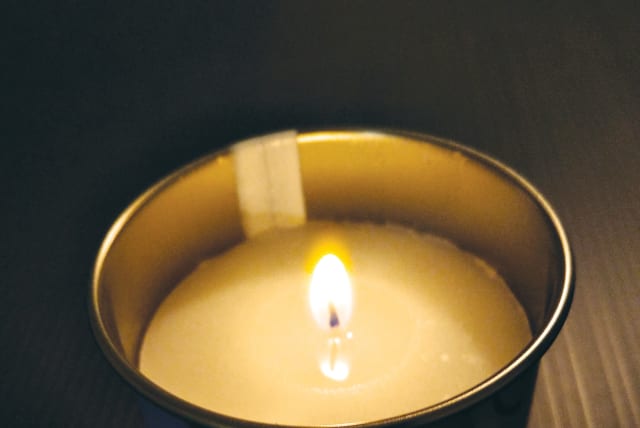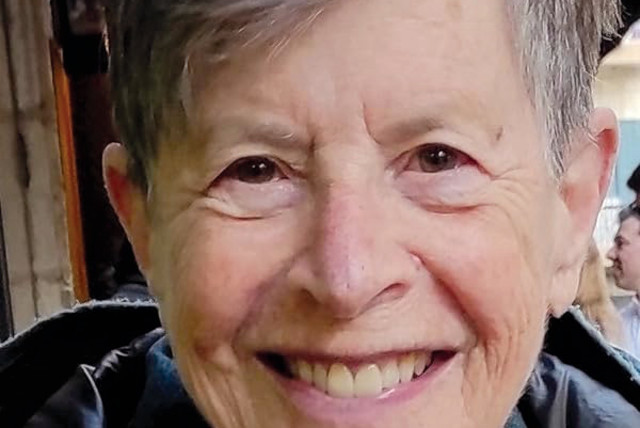'Our Names Do Not Appear': Struggles with grief without closure - review

Although this is a memoir, one needs to be prepared for flights of imagination that were part of her hopes that never materialized.
It is well-known that there is no closure to grief, no acceptance of bereavement while there are missing links. Families of those reported killed in action or in terrorist attacks cannot rest until their loved ones are brought back and buried at home.
In her moving hybrid memoir Our Names Do Not Appear, Judy Lev describes these missing links from when at the age of five, she and her sister were told that their baby brother Joey had died. She knew that her mother had given birth and brought the baby home. One day he was taken to a care home, but she was not given any details, nor did she visit. He just disappeared. Then their local rabbi told them gently of the child’s death. There were no mourning rituals, no shiva, no acknowledgment in the family. Lev’s mother suffered from severe depressive episodes throughout her life, but there was a wall of silence about the fate of Joey.
Those were the days, the 1940s and 1950s, when parents and child care experts did not understand the sensitivity of small children, the whispered word, a nuance, an atmosphere in the home that denied explanation. Thanks to the work of psychoanalysts such as John Bowlby, Donald Winnacott, and Melanie Klein, parents learned that family events, however distressing, should be shared with even the youngest children.
In her book Our Names Do Not Appear, the text flows smoothly. Lev is an experienced prizewinning author and teacher of creative writing. Although this is a memoir, one needs to be prepared for flights of imagination that were part of her hopes that never materialized.
Hope that never materialized
So it was rather strange to see a switch in point of view and situation when we see through the eyes of Lev’s father how he shielded his family. He had been very protective of the mother to the exclusion of the children. However, in what turns out to be a switch to fantasy, we see his experiences as they bring home a severely disabled baby, the difficulty of coping, and the decision to place him in a care home. In order to shield his family, he arranged a cremation when Joey passed away.
But in Lev’s fantasy land, a nurse at the care home so loved Joey that she managed to get responses from him. When the family was informed of his death, the nurse took him home and cared for him until her death, by which time Joey was functioning, walking with crutches, talking, and partially independent. This episode finishes when Joey is on the way to Jerusalem to work with Alyn. Lev, too, believed that he had survived.
This memoir starts with a familiar scene in a house of children. Lev, the mother of three children, is preparing for Shabbat in Jerusalem when the youngest, aged eight months, named Joseph after her deceased sibling, becomes seriously ill, with raised temperature and convulsions. They rush him to the hospital. Lev is distraught, but more so as she experienced flashbacks from her childhood. The baby survives, and all seems to return to normal in the family.
But from that time on, Lev began writing letters to the rabbi who had broken the news of Joey so many years before.
“There is an emptiness inside me, I want to know the truth. Who was Joey? When did he die? Why? Where is he buried?”
Lev started examining all the documents, was suspicious that the death certificate had some discrepancies. Why had Joey died so soon after entering the care home, whereas they had managed to keep him alive at home for a year, albeit with difficulty? The attending doctor was also the registrar. Why was the baby cremated, contrary to Jewish practice? He left without saying goodbye.
“It was like digging a tunnel with a pencil,” Lev said.
Her father had passed away at a young age, so she could not question him. But as she and her mother grew older, their relationship got closer. When Lev shared her grief with her, her mother sent her a letter with facts that should have been shared so many years earlier: the birth of Joey, the diagnoses of severe CP, the decision to place him in a care home, and his death from pneumonia. She also explained that in their grief, they could not face a shiva or visits from friends.
Started in 1982 and published in 2023, this book was obviously written with enormous emotional difficulty, and one hopes that its publication has brought some closure to Lev’s mourning.
Judy Lev (Labensohn) was born in Ohio. She lived for many years in Jerusalem but after she left her husband and met her new partner, they moved to Beit Zayit to be near her daughter, and then to Tel Aviv. Eventually they settled in Haifa near her son.■
- Our Names Do Not Appear: A Memoir
- Judy Lev
- Available from Amazon ($18.99) or Kindle ($9.99) or from the author:
- www.judylev.com
Jerusalem Post Store
`; document.getElementById("linkPremium").innerHTML = cont; var divWithLink = document.getElementById("premium-link"); if (divWithLink !== null && divWithLink !== 'undefined') { divWithLink.style.border = "solid 1px #cb0f3e"; divWithLink.style.textAlign = "center"; divWithLink.style.marginBottom = "15px"; divWithLink.style.marginTop = "15px"; divWithLink.style.width = "100%"; divWithLink.style.backgroundColor = "#122952"; divWithLink.style.color = "#ffffff"; divWithLink.style.lineHeight = "1.5"; } } (function (v, i) { });

